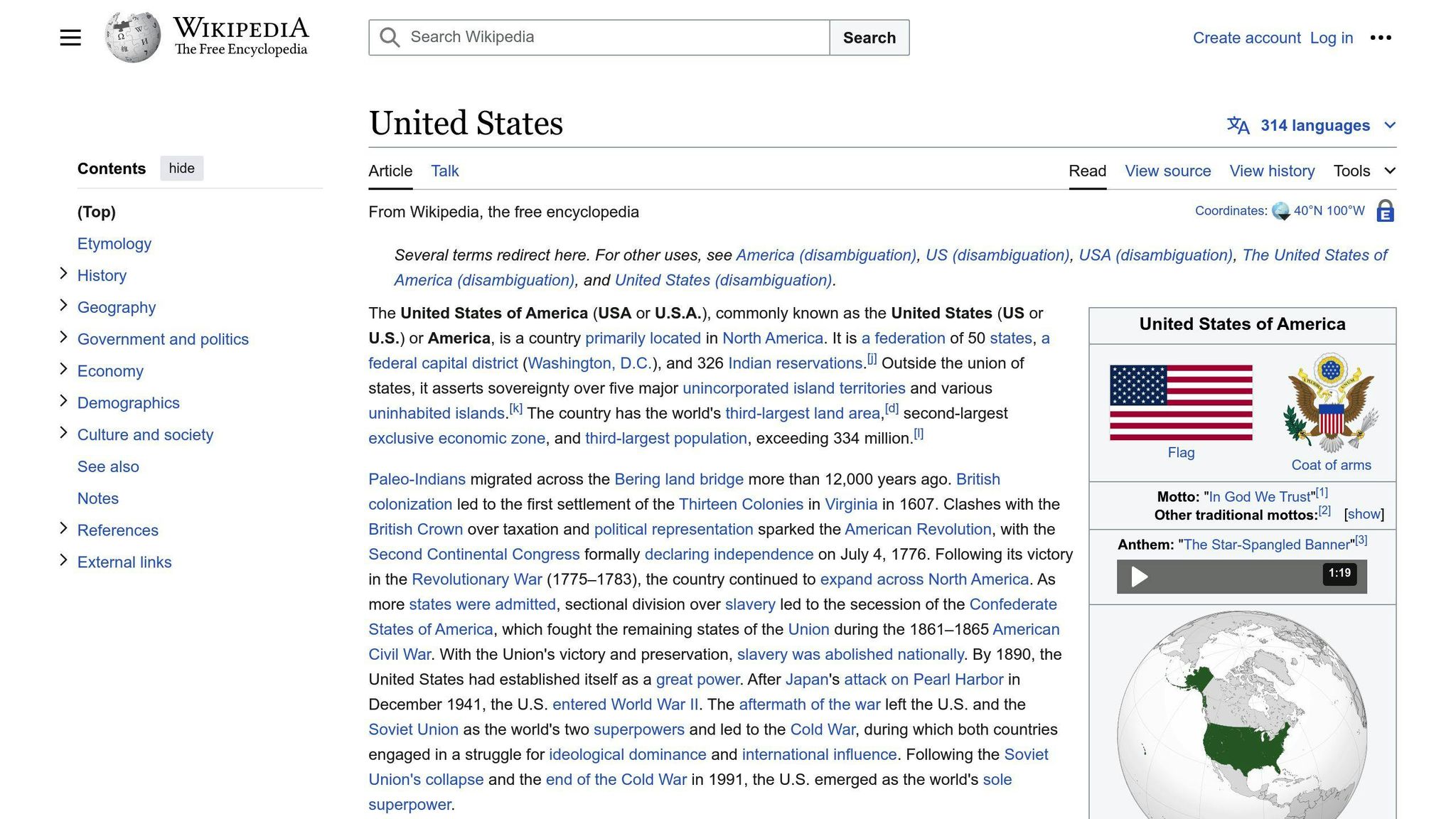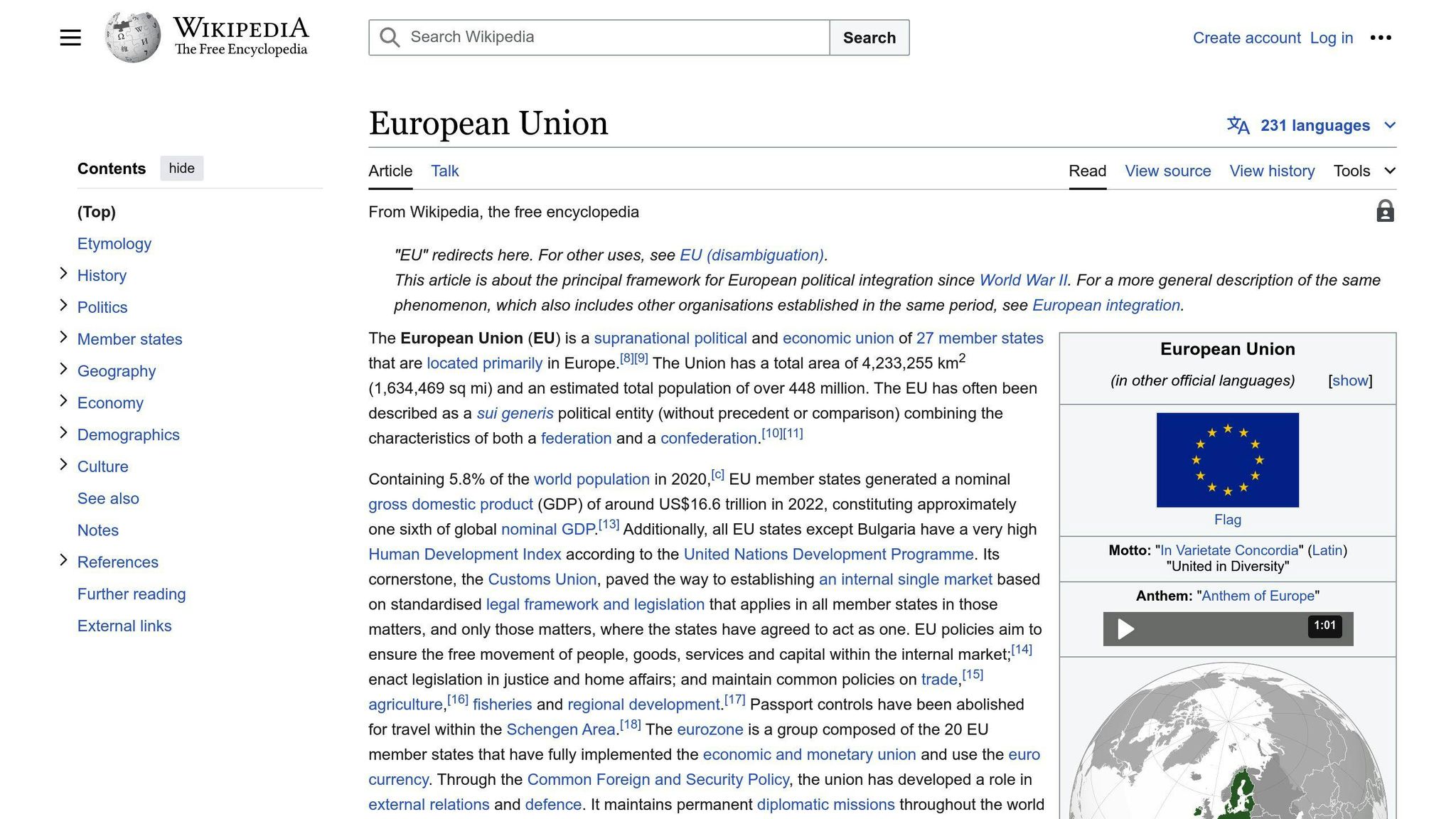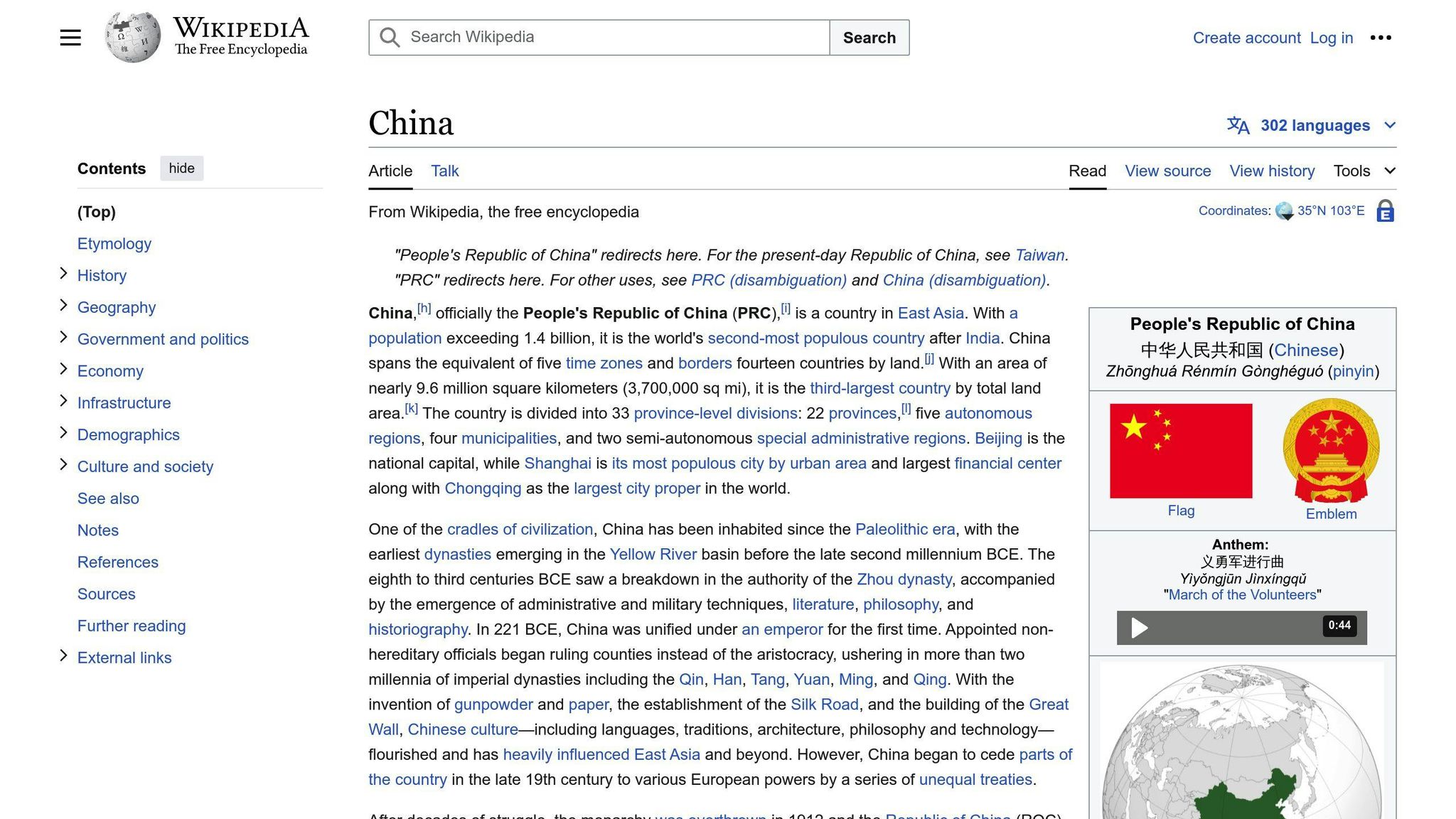
AI Data Governance: Global Trends, Privacy & Security
Compare AI regulations across US, EU, and China. Know what compliance rules apply to your business before they hit.

Written by
Adam Stewart
Key Points
- Compare US sector rules vs EU risk-based AI regulation approaches
- Map GDPR and PIPL data requirements for AI systems by region
- Spot high-risk AI categories with stricter compliance rules
- Build global AI governance strategy using UN frameworks
AI data governance ensures AI systems are transparent, ethical, and trustworthy. As AI adoption grows, effective governance frameworks are crucial across industries and regions. This article explores global trends, privacy, and security aspects of AI data governance, highlighting the need for nuanced strategies.
Key Points:
- Different regions have diverse approaches to AI governance
- Comparative analysis is essential to understand variations in strategies
- Governing AI data globally presents challenges and complexities
- A nuanced understanding of AI data governance frameworks is vital
- Market-driven approach with varying rules across sectors and states
- State privacy laws regulate automated decision-making and profiling
- Laws in Illinois and New York govern AI use in employment
- Proposed AI Act to ensure AI systems are transparent, ethical, and trustworthy
- GDPR sets rules for handling personal data in AI systems
- Risk-based approach with stricter rules for "high-risk" AI systems
- International collaboration to promote shared AI governance principles
- Focus on national security, data privacy, and ethical considerations
- Personal Information Protection Law (PIPL) protects privacy and personal data
- Cybersecurity Law and standards ensure AI system security
- Engages in global AI governance initiatives, promoting its own framework
- Plays a key role in shaping worldwide AI governance strategies
- Human-centered, rights-based approach focused on sustainable development
- Facilitates international cooperation and dialogue among member states
- Establishing policies and frameworks for responsible AI development
Advantages and Challenges:
| Advantages | Challenges |
|---|---|
| Transparency and accountability | Complexity and scalability |
| Improved data quality | Resource-intensive |
| Efficiency gains | Potential governance bias |
| Compliance and risk mitigation | Balancing regulation and innovation |
Conclusion:
Robust AI data governance frameworks are needed to address ethical concerns, ensure transparency, and mitigate risks. International cooperation and clear guidelines from organizations like the UN are crucial for responsible and ethical AI practices as these technologies expand across sectors.
Related video from YouTube
1. United States

Regulatory Approach
The US takes a market-driven approach to AI regulation, with rules varying across sectors and states. While there is no federal AI law, existing laws guide AI governance, especially in areas like employment, privacy, and intellectual property.
Privacy and Data Use
State privacy laws address the use of automated decision-making and profiling. Most states require companies to:
- Disclose when using AI for automated decision processes
- Allow consumers to opt-out of this type of data processing
Some states, like California, go further by requiring companies to:
- Disclose the logic behind AI decision-making
- Assess how these processes may impact consumers
AI in Employment
Laws in Illinois and New York impact how AI can be used for employment. Key requirements include:
| Requirement | Details |
|---|---|
| Disclosure | Employers must inform applicants if AI will evaluate video interviews |
| Consent | Candidates must consent to AI use before video interviews |
| Data Handling | Video interview data must be destroyed within 30 days upon request |
The US approach involves different agencies overseeing AI guidelines in their respective sectors, such as:
- Federal Trade Commission
- Department of Justice
- Consumer Financial Protection Bureau
- Equal Employment Opportunity Commission
2. European Union

Regulatory Frameworks
The EU takes a proactive approach to regulate AI through the proposed AI Act. This law aims to ensure AI systems used in the EU are:
- Transparent: Clear about how they work
- Ethical: Respect fundamental rights and values
- Trustworthy: Operate in a fair and responsible manner
Privacy and Data Protection
The EU's General Data Protection Regulation (GDPR) sets rules for how AI systems handle personal data:
- Lawful basis: Companies must have a legal reason to process data
- Data minimization: Only collect and use necessary data
- Transparency: Inform individuals about data processing
- Privacy by design: Build privacy into AI systems from the start
- Data protection impact assessments: Evaluate risks to individuals' rights
- Individual rights: People can access, correct, or delete their data
Security and Risk Management
The AI Act takes a risk-based approach, with stricter rules for "high-risk" AI systems that could significantly impact people. Requirements include:
| Requirement | Details |
|---|---|
| Risk management | Strategies to identify and mitigate risks |
| Human oversight | Humans must monitor and control AI systems |
| Documentation | Clear and up-to-date technical information |
| Testing and monitoring | Rigorous evaluation throughout the AI lifecycle |
International Collaboration
The EU recognizes AI's global nature and works with:
- United Nations
- OECD
- Other international organizations
To promote shared principles and standards for trustworthy AI.
3. China

Regulatory Framework
China has been actively developing rules for AI governance. The focus is on national security, data privacy, and ethical considerations. Key regulations and guidelines include:
| Regulation/Guideline | Purpose |
|---|---|
| Personal Information Protection Law (PIPL) | Protect privacy and personal data of Chinese citizens |
| Cybersecurity Law | Ensure security of AI systems and data |
| Interim Measures for Generative AI Services | Regulate development and use of generative AI services |
Privacy and Data Protection
The PIPL, effective November 2021, requires organizations to:
- Obtain consent before collecting and processing personal data
- Store data securely within China
- Not transfer data outside China without permission
Security and Risk Management
China's Cybersecurity Law and related rules emphasize security and risk management for AI. The government has established:
- A national AI security testing and evaluation system
- Standards that AI systems must meet for security
International Collaboration
China engages in global AI governance initiatives, such as:
- United Nations
- OECD
- Other multilateral organizations
The country promotes its own AI governance framework and standards, aiming to be a leader in global AI governance.
sbb-itb-ef0082b
4. United Nations

Global Governance Role
The United Nations (UN) plays a key role in shaping worldwide AI governance. In March 2024, the UN General Assembly adopted a major resolution promoting "safe, secure, and trustworthy" AI systems to benefit sustainable development globally. The UN's approach emphasizes a human-centered, rights-based strategy.
International Collaboration
The UN leads global AI governance efforts, releasing a report on AI and human rights, and adopting a resolution on the same topic. The UN's AI Advisory Body identified seven governance functions for an institution or network, starting with expert-led scientific consensus and building to global norms, compliance, and accountability.
The UN's human-centered, rights-based approach guides its AI policy for the 21st century. The organization has established policies to ensure decision-making within its agencies remains focused on human rights and civil liberties in this new era.
The UN's Global Digital Compact, with its zero draft released on April 1, 2024, confirms the UN's commitment to regulating and governing new and emerging technologies. The UN's involvement in AI governance is crucial, providing a platform for intergovernmental dialogue and enabling member states to design better regulatory frameworks.
Key Points
| UN's Role in AI Governance | Details |
|---|---|
| Global Leadership | Shaping worldwide AI governance strategies |
| Human-Centered Approach | Emphasizing human rights and civil liberties |
| International Collaboration | Facilitating dialogue and cooperation among member states |
| Policy Development | Establishing policies and frameworks for responsible AI |
| Sustainable Development | Promoting AI systems that benefit global development goals |
Advantages and Drawbacks
Implementing AI data governance frameworks offers both benefits and challenges. Understanding these is crucial for organizations aiming to utilize AI responsibly and ethically.
Benefits:
| Benefit | Description |
|---|---|
| Transparency and Accountability | AI data governance promotes openness in AI decision-making processes, ensuring responsibility and trustworthiness. |
| Improved Data Quality | Effective data governance ensures high-quality data, reducing risks of biases and inaccuracies in AI systems. |
| Efficiency Gains | AI data governance enables automating routine tasks, freeing resources for strategic activities. |
| Compliance and Risk Mitigation | These frameworks help organizations follow regulations and manage risks associated with AI deployments. |
Challenges:
| Challenge | Description |
|---|---|
| Complexity and Scalability | Implementing AI data governance can be complex, especially for large-scale AI deployments. |
| Resource Intensive | Effective AI data governance requires significant investments in personnel, technology, and infrastructure. |
| Potential Governance Bias | The governance frameworks themselves may perpetuate existing social and economic inequalities. |
| Balancing Regulation and Innovation | Overly restrictive frameworks can stifle innovation, while lax ones may compromise ethical AI use. |
Conclusion
The analysis of global trends, privacy, and security in AI data governance shows the need for ongoing monitoring, cooperation, and clear guidelines to ensure responsible and ethical practices. As AI technologies expand across sectors, it is crucial for policymakers, organizations, and stakeholders to navigate this complex landscape effectively.
Key points from this analysis include:
- The need for robust frameworks that address ethical concerns, ensure transparency and accountability, and mitigate risks associated with AI deployments.
- The importance of international cooperation to establish common standards and best practices for AI data governance.
- The role of the United Nations in promoting responsible AI development and establishing a global framework for AI governance.
To navigate the AI data governance landscape, policymakers, organizations, and stakeholders should:
| Action | Details |
|---|---|
| Develop robust frameworks | Address ethical concerns, ensure transparency and accountability, mitigate risks |
| Engage in international cooperation | Establish common standards, guidelines, and best practices |
| Support UN efforts | Promote responsible AI development and a global governance framework |
FAQs
What is the United Nations' role in global AI governance?
The United Nations plays a key role in shaping worldwide strategies for AI governance. The UN provides a platform for countries to discuss and cooperate on AI policies. Its approach focuses on human rights and civil liberties in the age of AI.
In March 2024, the UN General Assembly adopted a major resolution promoting "safe, secure, and trustworthy" AI systems to benefit global sustainable development. The UN's AI Advisory Body identified seven functions for an AI governance institution or network, starting with expert-led scientific consensus and building to global norms, compliance, and accountability.
The UN's Global Digital Compact, with its draft released in April 2024, confirms the UN's commitment to regulating and governing new and emerging technologies like AI.
| UN's Role in AI Governance | Details |
|---|---|
| Global Leadership | Shaping worldwide AI governance strategies |
| Human-Centered Approach | Emphasizing human rights and civil liberties |
| International Cooperation | Facilitating dialogue and cooperation among countries |
| Policy Development | Establishing policies and frameworks for responsible AI |
| Sustainable Development | Promoting AI systems that benefit global development goals |
The UN's involvement in AI governance is crucial, enabling countries to design better regulatory frameworks and promoting responsible AI development globally.
Summarize with AI
Related Posts
Cross-Border AI Data Transfers: Navigating Challenges
Explore the complexities of cross-border AI data transfers, ensuring secure, compliant exchange amidst evolving global data protection laws and cybersecurity threats.
China Unveils Rules for Generative AI Services
China unveils regulations for generative AI services to promote responsible development, protect user rights, and ensure national security. Learn about key requirements, scope, obligations, and impact.
AI Governance Framework: Best Practices & Implementation
Learn about best practices for implementing an effective AI governance framework including ethical guidelines, data management, roles, model monitoring, human control, compliance, training, and communication.
AI in Healthcare: Balancing Patient Data Privacy & Innovation
Explore the benefits and risks of using AI in healthcare, along with strategies to balance patient data privacy and innovation. Learn how emerging technologies could shape the future of healthcare AI.
